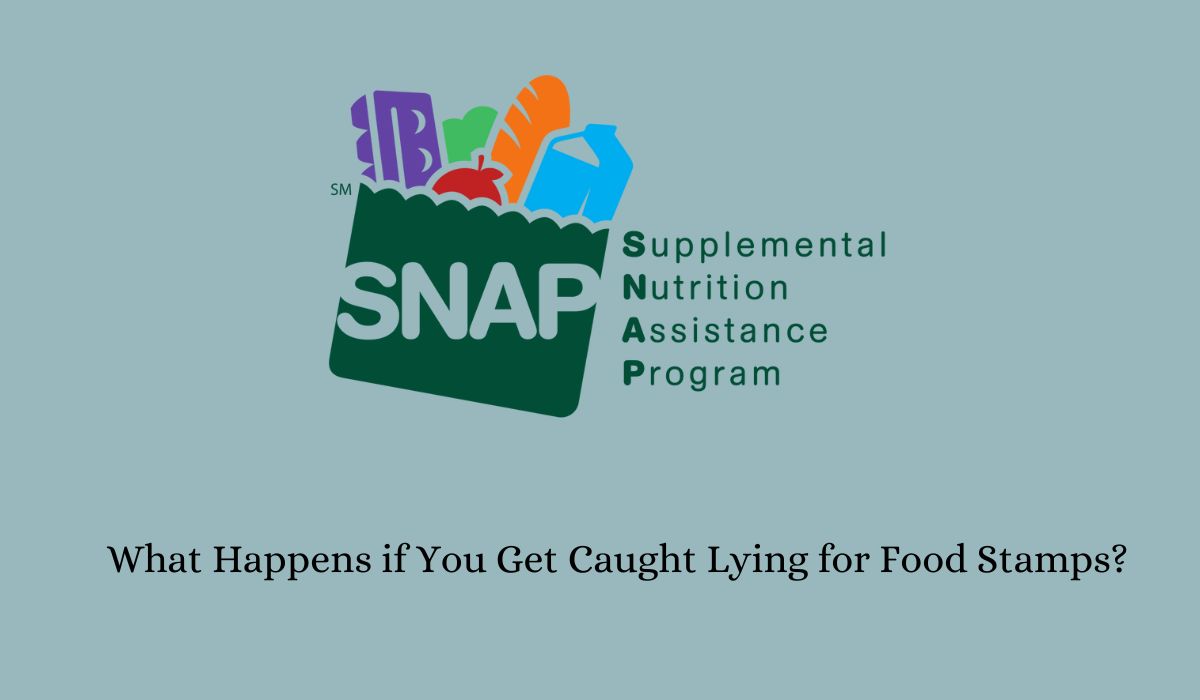Food stamps, also known as the Supplemental Nutrition Assistance Program (SNAP), are meant to provide assistance to low-income individuals and families in the United States.
However, some people may be tempted to lie on their application to receive more benefits or qualify for the program when they do not actually meet the eligibility criteria.
If you are considering lying on your food stamp application, you should be aware of the potential consequences that can occur if you get caught. In this article, I will be discussing what happens if you are caught lying for food stamps and why it is not worth the risk.
Why People Lie for Food Stamps
Before we discuss the potential consequences of lying for food stamps, it is important to understand why some people may be tempted to do so. One of the main reasons is the financial strain that many low-income individuals and families face.
Food stamps can provide much-needed assistance with grocery expenses, and some may feel that lying on their application is a way to ease this burden. Additionally, there may be social pressure or stigma associated with receiving government aid.
Some people may want to avoid the judgement or shame that they believe comes from being on food stamps, so they resort to dishonesty to receive benefits. However, it is important to remember that there is no shame in receiving assistance when you truly need it.
The Consequences of Lying for Food Stamps
If you are caught lying on your food stamp application, the consequences can be severe. The most common and immediate result is that your benefits will be revoked and you may have to pay back any benefits that were received based on false information.
Legal Implications
Criminal Charges
The most immediate and severe consequence of lying on a food stamp application is the potential for criminal charges. Fraudulently obtaining government benefits is a crime. Depending on the severity and the amount of money involved, charges can range from misdemeanor to felony. This could lead to a criminal record, which has long-term implications for employment, housing, and other aspects of life.
Repayment and Fines
If found guilty of food stamp fraud, individuals are typically required to repay the overpaid benefits. This repayment is often coupled with hefty fines. The financial burden of repayment and fines can be substantial, negating any short-term gains achieved through fraudulent means.
Disqualification from SNAP
Being caught in fraudulent activities almost always leads to disqualification from the SNAP program. This disqualification can be temporary or permanent, depending on the severity of the offense. Losing access to this critical assistance source can devastate those who genuinely need the support.
Social and Personal Consequences
Stigma and Reputation Damage
Apart from legal and financial repercussions, there’s a significant social cost. Being caught in such fraudulent activities can lead to public embarrassment and stigma. This can strain personal relationships and lead to a loss of trust within the community.
Psychological Impact
The stress and guilt associated with committing fraud and facing its consequences can have profound psychological effects. The fear of getting caught, coupled with the potential legal battles, can lead to anxiety, depression, and other mental health issues.
Broader Impact on the System
Strain on Resources
Food stamp fraud can put a strain on the resources meant for those in genuine need. Every dollar lost to fraud is a dollar that could have been used to assist another family or individual in need.
Policy Tightening
Repeated instances of fraud can lead to stricter policies and regulations, making it harder for eligible individuals to access these benefits. This can include more rigorous application processes and frequent checks, which can be burdensome for those genuinely in need.
Conclusion
The consequences of lying to obtain food stamps are far-reaching and serious. They extend beyond legal ramifications, affecting personal, social, and psychological aspects of one’s life.
Moreover, such actions undermine the integrity of a system designed to help the most vulnerable in society. It’s crucial to understand that the short-term benefits of such deceit are vastly outweighed by the long-term consequences.
As a society, it’s important to uphold the values of honesty and integrity, especially when it comes to programs intended to assist those in need.
